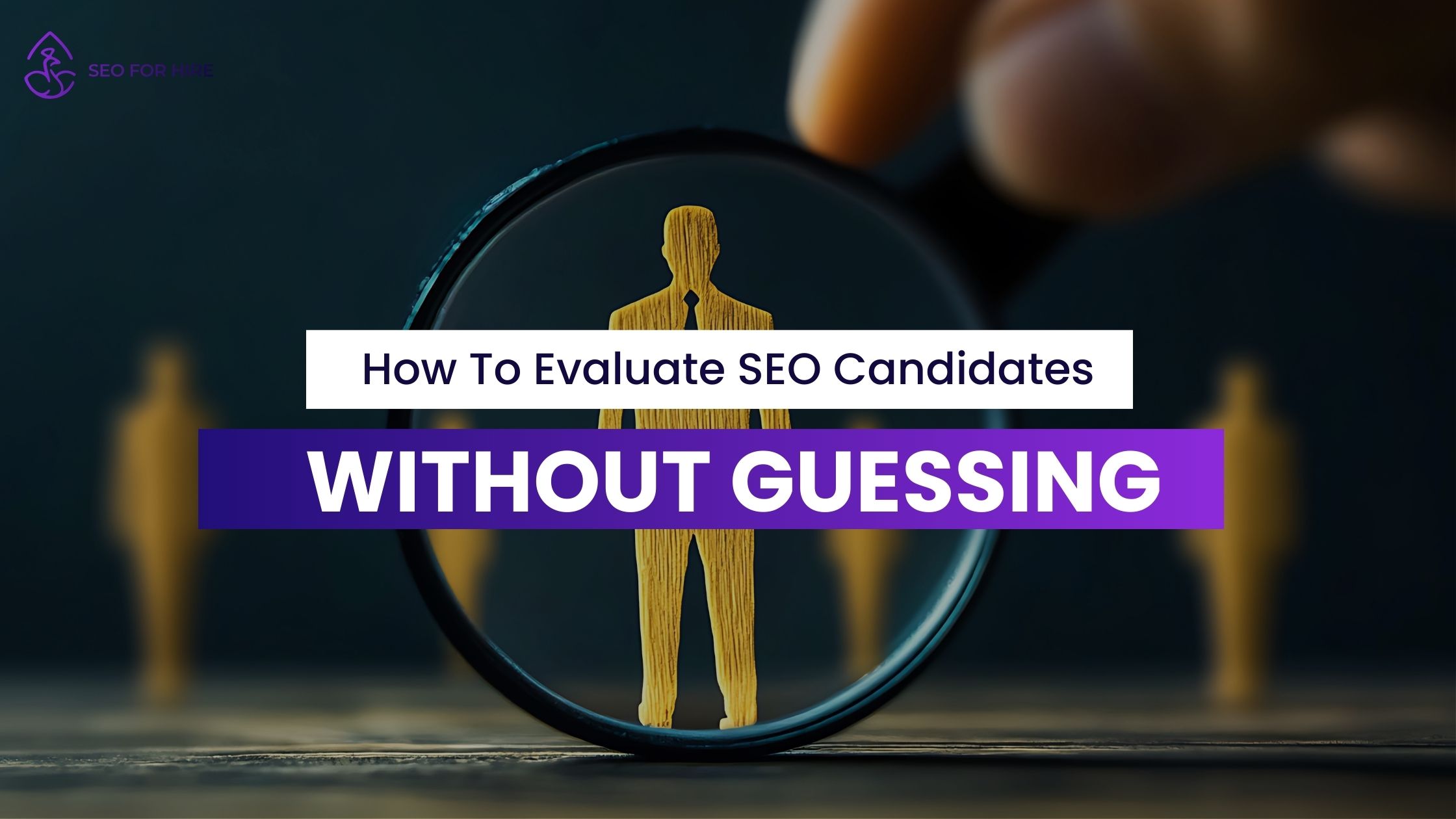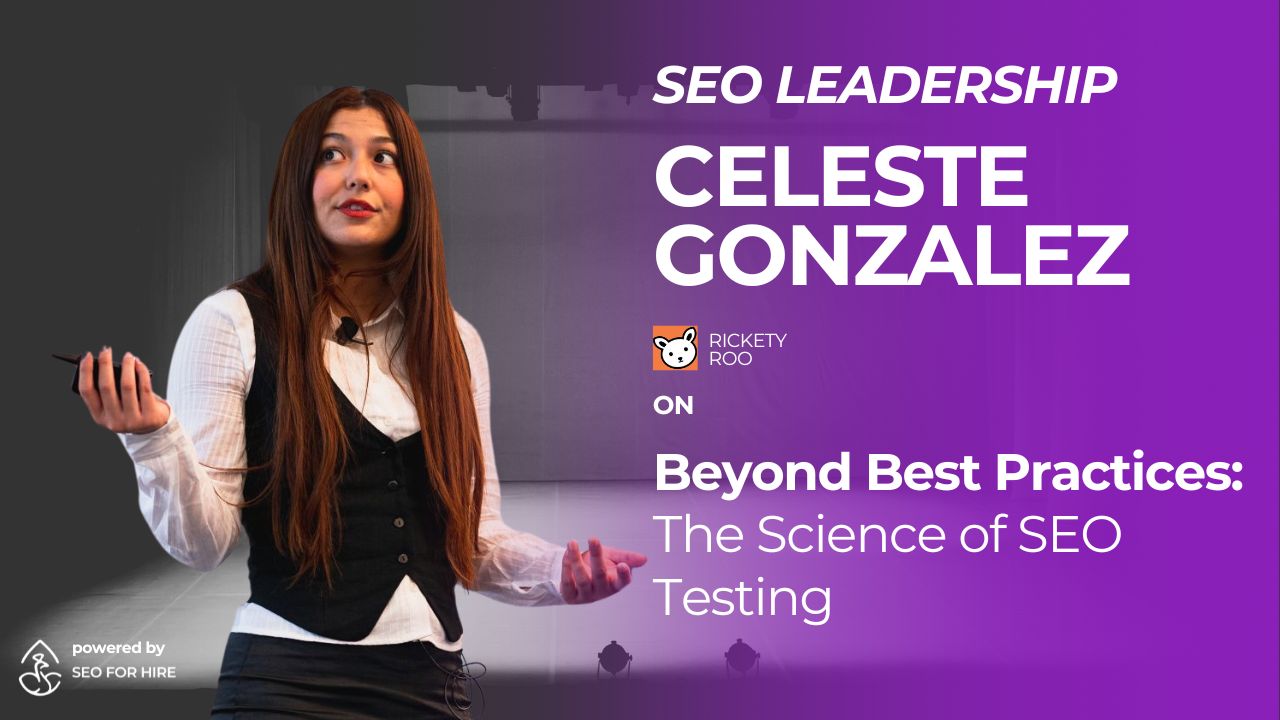This month, the SEO For Hire team kicked off our new series on Digital PR: the #DPRLeadership webinar, where we were joined by the perfect first guest, Founder of Unearth PR, Georgia Gadsby March.
Georgia gathered experience working as a Lead PR, generating strategies for large brands such as: HelloFresh, Bensons For Beds, TALA, Piglet in Bed, Vitabiotics, Rocco & The Fox, and more. With experience in securing links for publications such as Forbes, BBC News, and Marie Claire, as well as helping clients:
– Grow their website traffic by 2,800%
– Increase their revenue by over 300%
The webinar aimed to cover themes on:
- Entering into the Digital PR industry
- Career progression
- Ideation and strategy
- Working with AI
- Fostering culture, and much more.
Here are a few of our favourite highlights from the webinar with Georgia:
How did you get into Digital PR?
‘For me, this is a common experience in DPR because it is such a new industry.
But I pretty much fell into it.
I started off in traditional PR, did a couple of internships and then I ended up in a marketing assistant role for a really big national homeware retailer.
I noticed that this massive retailer that I was working for didn’t have a single PR person or a PR team or anything. So I remember saying to my manager that I had a bit of PR experience, and we were struggling to shift some stock of a product.
I asked them to let me give it a go and send out a press release.
So we pitched that morning and by the afternoon, we had loads of links and coverage come in–it had done so well.
Two weeks later I was the PR person for the whole company, no training, no experience, etc.
I did that for two years – I got all my information off of Twitter and reading SEMrush resources, just trying to figure it out.
It got to a point where I wanted to work with people that were experienced so I could grow.
So I ended up becoming a DPR consultant for an SEO agency. I essentially worked my way up and learned as I went, changed jobs and became a DPR manager, managing a team, then started my own agency–Unearth PR.’
What do you look for if you’re looking to hire a graduate with minimal experience for an entry level position?
‘I am looking to hire in the next 12 months and in terms of juniors, what really makes someone standout specifically in DPR is just honestly knowledge of the media.
I think it can become quite evident when someone is interviewing and they may be don’t read that much news or they’re not aware of what’s trending and don’t have any sort of concept of what’s been going on on social media, for example.
That’s kind of setting apart who can do an ‘okay’ job and who can do a fantastic job.
If you’re a junior PR and you’re struggling to get a look-in when you’re having these interviews, just demonstrate knowledge of the media landscape – talk about the publications you read, a story that you’ve seen that’s maybe gone viral, why you think it’s worked.
Even shouting out journalists you always read the work of, that’s going to set you apart, for me.’
On ideation – what’s involved in your ideation process and how does that change between clients and/or niches?
‘For me, everyone’s different–I’m naturally a creative person but some people may struggle a bit more and need to put a bit more effort into coming up with ideas, but for me–every single time I come up with an idea, I have a Google doc and I put it in there.
So even if I’m on a walk and I think of something really random that could work, I put it in my Google doc.
I’ve been doing this for about 5 years now, so whenever I’m ideating, I look through the doc to see what I come up before.
Oftentimes I don’t even pull something from the doc, most times I find myself just seeing something in there that sparks another idea.
So if you haven’t done that, start creating a bank of ideas.
Also, I do a lot of mind mapping, especially when dealing with different niches.
For example, I work with a bathroom brand. So I’ll start with that word and build my way outwards, which can then spur on ideas. Very traditional in that sense.’
From your experience of being a manager and Head of Digital PR, what separates a good idea from a great idea?
’The best tip that helped me was something I learned way back when I was doing work experience about 8 years ago, and I was writing for this company thats biggest aim was to just get content out there.
I wrote one piece about a heart-warming community piece, and it ended up being the top performing piece for that entire month for this publication.
I was so shocked, and it was because they posted that piece on Facebook and it had gotten so many comments, engagement, etc.
It was because it was rooted in community.
Because you created that connection that it’s readable and shareable, that kind of explodes the topic. So for me, what separates a good idea from a great one is its ability to be shareable on socials, so if journalists receive proposals from DPRs and think that’s something that will do well on Facebook, it will also help them hit their KPIs.
It’s all about meeting the journalists halfway, and the wider impact on social media, basically.’
On the topic of career progression, were there any prominent mindset shifts you experienced?
’It’s best to start from the beginning, from a consultant into a manager: the biggest shift for me was having self confidence and self belief that I was good at my job.
Imposter syndrome comes into it a bit when you first start–especially if you’re doing a bit of a career pivot from marketing to DPR, you get those imposter feelings.
You have to work your way to getting over that to become a good manager–in my opinion.
So I have a Google drive where – similar to my Google doc, I keep track of all the positive comments I receive from clients, teams, maangers, co-workers, etc.
If I ever start to feel little bits of imposter syndrome, then I would look at that.
That helped me massively when becoming a manager.
One thing I always had positive feedback on was that I was good at providing constructive feedback, and I believe that that’s crucial to being a manager.
You need to be able to give constructive criticism as a manager. In my opinion, it’s one of the most important parts of the job.
If you’re able to provide constructive feedback to your colleagues, that’s a great indication you could step into a managerial role.
In terms of becoming a co-founder, it comes back to that self-confidence factor. You have to pick yourself back up, so in career progression in Digital PR, you have to have self-belief.’
If your team are looking to grow their Digital PR team, the SEO for Hire team are happy to assist in providing strong DPR talent to your team.
Book in a call, and we’d love to see how we can help.
If you would like to listen to the full episode of the DPR Leadership podcast, you can find it here:



